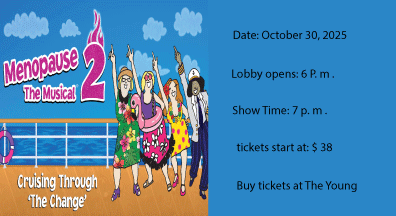Speech bill may lead to student discipline
September 12, 2017
A free speech bill that would hand down suspension and expulsion punishments for students who violate the free speech of others has passed the Wisconsin State Assembly and was prepared Monday for a Senate vote.
The speech bill, if passed through the Senate and signed by Gov. Scott Walker, would task the University of Wisconsin Board of Regents with developing a policy pertaining free speech on all of their four- and two-year campuses. That includes language stating that students may protest speakers brought to campus, but only if it does not disrupt the speaker.
Language of the bill would also require the Board of Regents’ policy to state that campuses remain open to any speaker invited, institutions stay neutral on controversies relating to public policy and provide freshman students with First Amendment training on the Regents’ policy, among other reporting regulations.
The speech bill also states that the Board of Regent’s policy should discipline students who limit others’ free speech after undergoing an investigation and hearing, with two offenses prompting a minimum of a one-semester suspension, and a third resulting in expulsion from the campus.
The speech bill passed the Wisconsin State Assembly with a vote of 61-36, and was mainly split down partisan lines, with only Rep. Bob Gannon (R-West Bend) voting no against his fellow Republican legislators.
Rep. Jesse Kremer (R-Kewaskum) authored the bill, which was introduced by Kremer and 27 other Republican representatives. He says the bill promotes the free exercise of speech and says it guarantees that UW college students have the same Constitutional rights that the rest of the society enjoys.
“Repeatedly, we’ve seen students shouted down and silenced by those in disagreement and unconstitutional policies that violate the First Amendment on the books at the UW,” Kremer wrote in a June 21 news release. “ The Campus Free Speech Act will end the unconstitutional ‘heckler’s veto’ and create a behavioral shift on campus.”
Rep. Don Vruwink (D-Milton), a former history teacher for the school district of Milton who is “one of the biggest proponents of free speech,” testified against the bill during the May 11 Committee on Colleges and Universities public hearing, and opposed it in the vote.
“We in this body should all be concerned about protecting First Amendment rights,” Vruwink said. “And absolutely both sides need to be heard, and without interruption … I’m concerned about the consequences of this, and what it’s going to produce.”
“I’m as concerned about free speech as you are, but I don’t want to see the consequences … my question is, are you not worried about the consequences? You don’t think that this is going to produce people pushing back, or students pushing back and pushing things to the limit? That’s what I don’t want to see happen.”
Campus issue
Vruwink says the issue of free speech, and whether speakers who come to campus are receiving that full right, is a decision that should be left to the student governance groups of each campus.
Vruwink, who has attended Whitewater Student Government meetings, says they’re better equipped to handle the issue than the state legislatures are.
“WSG is more civil to each other than we are in the assembly,” Vruwink said.
It’s also important that campus demographics come into play when looking at the opposition presented by the students, Vruwink says.
He used the example of UW-Madison, where the political ideology on campus is, by his estimation, 75 percent liberal. Other campuses aren’t so – there are campuses around the state when conservative ideologies are more prevalent; and because of this, the response from students will likely correlate.
Therefore, it’s expected there will be more backlash to UW-Madison bringing a conservative speaker to campus, whereas at a campus that has a higher population of conservative students, the reaction to a liberal speaker might be similar, he said.
“It’s the right of the kids to say what views they want at their university,” Vruwink said.
Chilling effect
Vruwink said he worries that this bill will lead to a decrease in voices brought to campus.
“The ultimate number of speakers will decrease because campuses don’t want to deal with lawsuits,” he said.
Sen. Janis Ringhand (D-Evansville) says the bill is an “ironic” way of preventing free speech on UW campuses.
“The bill is poorly drafted and open-ended,” she wrote in a statement to Royal Purple. “It would allow someone who is offended to sue the campus by claiming that their free speech was violated, leaving taxpayers on the hook to defend frivolous lawsuits.”













